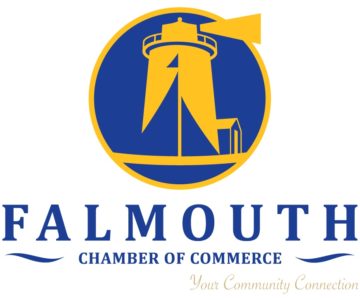By Carol K. Dumas
Every year, businesses and corporations from all over the country write checks to charities of their choice, donations which nonprofits depend on for survival. For-profits, in turn, get a tax-write off and feel good about investing in the community.
Since 1991, Philanthropy Partners of the Cape and Islands (PPCI) (formally known as the Planned Giving Council of Cape Cod) has been encouraging charitable giving on Cape Cod, bridging the gap between the two sectors. Through its popular Philanthropy Day on Cape Cod (first held in 1996), PPCI brings together nonprofits and for-profits in an educational day of inspiring keynotes, talks, workshops and networking as well as a celebration of philanthropy through their Distinguished Service through Philanthropy awards. The organization also offers special workshops on various topics related to nonprofit issues throughout the year.
“PPCI’s programming has continued to grow and evolve,” says Kristin O’Malley, president and CEO of The Cape Cod Foundation and current president of the board of directors of PPCI, which has some 220 members made up from both for- and nonprofit organizations. “Over the course of our work, we have learned that people are hungry for more opportunities to network and share. In addition to Philanthropy Day and our quarterly educational sessions, over the past few years, we have added three regional networking events and special educational sessions that offer a ‘deeper dive’ into some of the topics covered in our other offerings. The focus of PPCI has been on topics related to asset development-primarily fundraising and marketing — but you can’t talk about those without getting into other nonprofit topics, so we often collaborate with other local groups to co-host sessions on those other topics as well.”
According to the Massachusetts Nonprofit Network (MNN), there are some 1,200 nonprofits listed on the Cape and Islands, representing the sectors of youth and education, human services, arts and culture, nature and environment, philanthropy, religion, housing, healthcare and human rights. MNN estimates that the nonprofits in the region generate some $1.8 billion annually in total revenue. Yet, while the Cape and Islands do have a fair number of larger nonprofits, many of local organizations are on the smaller side.
“As a mostly all-volunteer organization ourselves, we understand the challenges that local nonprofits face. It is important for PPCI to make sure that our offerings cover a range of topics and approaches that appeal to a diverse audience,” says Sarah Tribuzio, current vice president of the PPCI Board. “While we do have a lot of nonprofits here in a small geographic space, and there is competition for donor dollars, nonprofits are searching for ways to work more collaboratively, and PPCI facilitates the opportunity for organizations to get together and have those conversations.”
The Benefit Of Giving Back
Philanthropy is not just about money but about making the world a better place. Most businesses would agree that without the nonprofit sector, our communities would be less rich in terms of culture. But nonprofits address social problems as well, including healthcare, housing and poverty and support educational initiatives, essential services often not fully funded by municipalities or even the federal government.
“We are sometimes asked why people in the business sector should attend the PPCI events,” says O’Malley. “The topics are relevant for anyone who works with nonprofits, whether paid staff, volunteers, committee or board members. Because nonprofits are using this space to share ideas, challenges, and celebrate opportunities, it is a great place to learn how people can become more involved. It’s exciting to see new partnerships develop and new volunteers matched because of a conversation that occurred at a PPCI event.”
“Our business partners are essential to the growth and sustainability of our organizations,” notes Christa Danilowicz, senior philanthropy officer of Big Brothers Big Sisters of Cape Cod and the Islands and Co-Chair of this year’s Philanthropy Day. “It’s not just about the dollars, but our local businesses donate significant amounts of time and talent to help keep our organizations’ engines running. They are helping with everything from once annual clean-up days to business and strategic plans to committees and Boards and everything in between.”
Tribuzio agrees. Her family runs Decatur House, an assisted living residence in Sandwich. Decatur House partners with the Riverview School in Sandwich to offer internship opportunities for students so they can secure jobs after graduation. “There are so many creative opportunities for businesses and nonprofits to partner,” she says.
A Change in Approach
The annual Philanthropy Day on Cape Cod was a sold-out event last month, with more than 500 people in attendance. This year, attendees heard what some characterized as a radical point of view about charitable giving, presented by Dan Pallotta, author of “Charity Case: How the Nonprofit Sector Can Stand Up for Itself and Really Change the World” and “Uncharitable: How Restraints on Non-profits Undermine Their Potential.”
“While businesses will move the great mass of humanity forward, it always leaves behind that 10 percent or more that is most disadvantaged or unlucky,” he said. “We are dealing with social problems massive in scale and our organizations can’t generate any scale. All of the scale goes to [the] Coca Cola [s] and Burger King [s].”
The for-profit world can do so much more, he said. Two percent of the Gross Domestic Product in the U.S. is charitable giving, he said, with $60 billion going to healthcare and human resource causes, the rest to religion and higher education. “Imagine if we moved it to 3 percent? That growth we would see would be in excess of $150 billion. There’s potential for real change.”
Along those lines, PPCI encourages nonprofits and businesses to be “thought partners,” and discover together what a nonprofit really needs to expand its impact.
“The decision to bring Dan in this year as our keynote speaker was a bold one, but while his message is provocative, it helps us understand that we as a community need to shift our thinking about how we support nonprofits and how we work together to solve our community’s most pressing challenges. Nonprofits can reimagine how we work, and donors can reimagine how they give. It’s a partnership, and there are great opportunities for continued dialogue. This is just the start,” explains Barbara Cotton, Executive Director of the Cape Cod Military Support Foundation, Philanthropy Day Co-Chair, and PPCI Board member.
The yardstick for charitable giving has traditionally been the operating costs of an organization. Pallotta noted in his books that “too many nonprofits are rewarded for how little they spend — not for what they get done.” Pallotta challenges that way of thinking by suggesting businesses “start rewarding charities for their big goals and big accomplishments (even if that comes with big expenses).”
“Don’t ask if a charity has low overhead,” agrees O’Malley. “Ask what is the next level for this organization and how can you help them achieve that and accomplish their mission?”
The PPCI Board is excited about the future, including continued dialogue related to the Philanthropy Day keynote. The board welcomes anyone to attend an upcoming event, including their annual meeting on Jan. 29, 2020 at the Cape Codder Resort and Spa in Hyannis.























